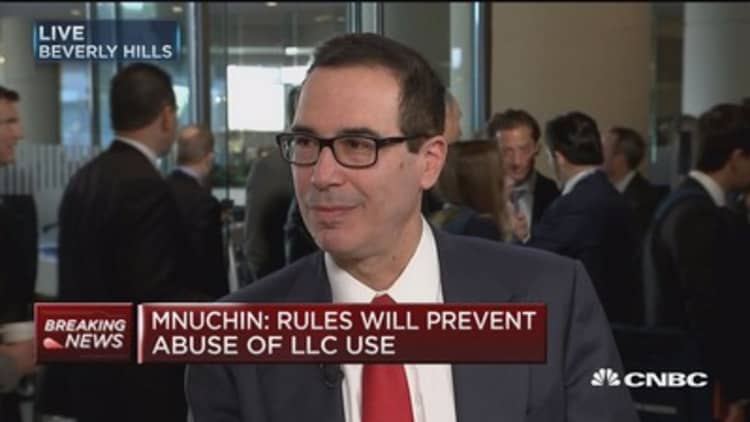
Sunshine and proximity to golf courses shouldn't be the only drivers of where you spend your golden years. Taxes matter as well.
While no one state has it all in terms of favorable levies, Alaska comes close because it has no income, statewide sales or estate taxes. Municipalities within the state do assess sales and property taxes.
"Typically the case is that you have to make up the revenue somewhere," said Morgan Scarboro, policy analyst at the Tax Foundation. "For instance, Florida leans heavily on the state sales tax."
Indeed, the Sunshine State doesn't tax income or estates, but the state sales tax is 6 percent and county sales taxes can be as high as 2 percent.
"I think if people are going to look at taxes, don't discount sales, property and estate taxes," said Tim Steffen, director of financial planning at Robert W. Baird & Co. in Milwaukee.
Here are the four key taxes you ought to consider as you choose your retirement haven, and the states with the lowest rates.
Income taxes
Seven states have no individual income taxes: Alaska, Florida, Nevada, South Dakota, Texas, Washington and Wyoming.
Tennessee doesn't tax personal income. However, it does tax capital gains and interest for now. State policymakers last year decided to phase out the "Hall tax" on interest and dividends by 2022. For the 2017 tax year, it's 4 percent.
New Hampshire also doesn't tax wages, but individuals pay a 5 percent levy on interest and dividend income.
Regardless of where you land, take a close look at your state's approach toward retirement income.
"Even when you look at a state with income taxes, retirees need to consider which ones don't tax retirement benefits, including pensions, Social Security and IRA distributions," said Jonathan Mariner, founder and president of TaxDay, a tax-focused app that tracks travel across jurisdictions.
Sales taxes
Five states have no sales taxes: Alaska, Delaware, Montana, New Hampshire and Oregon.
In all, 45 states and the District of Columbia have a sales tax, and 38 states — including Alaska and Montana — have a local sales tax as well, according to the Tax Foundation.
The states with the lowest combined state and local sales taxes are Alaska (1.76 percent), Hawaii (4.35 percent), Wyoming (5.4 percent), Wisconsin (5.42 percent) and Maine (5.5 percent), the Tax Foundation found.
Estate taxes
You've likely heard plenty about the federal government's 40 percent top rate on estates that exceed the $5.49 million exemption per individual. Don't ignore how your state will treat any money you leave behind.
Fourteen states and the District of Columbia have an estate tax: Connecticut, Delaware, Hawaii, Illinois, Maine, Maryland, Massachusetts, Minnesota, New Jersey, New York, Oregon, Rhode Island, Vermont and Washington.
Some states are looking at ways to manage their revenue issues, and wherever you move now, it may not be the same environment in a few years.Tim Steffendirector of financial planning at Robert W. Baird
Six have an inheritance tax, which applies to heirs: Iowa, Kentucky, Nebraska, New Jersey, Maryland and Pennsylvania.
"We do see retirees saying that if they have an estate or a family business, that they might move from a state to avoid that tax, as it can be fairly large," the Tax Foundation's Scarboro said.
Property taxes
Levies you pay on property you own can add to your bill in retirement, especially in places like New Jersey.
In the Garden State, homeowners face a mean effective property tax rate of 2.11 percent, the highest in the country, according to the Tax Foundation.
The five states with the lowest taxes on property are Hawaii (0.28 percent), Alabama (0.40 percent), Louisiana, (0.50 percent), Wyoming (0.51 percent) and West Virginia (0.53 percent), according to data from the Tax Foundation.
Though state and local taxes matter when you're choosing your retirement destination, Steffen said you should consider a multitude of other things, including the cost of living. Local laws are always in flux, depending on a state's given funding needs, so great deals on taxes now may not last.
"Be prepared for things to change," Steffen said. "Some attractive states are looking at ways to manage their revenue issues, and wherever you move now, it may not be the same environment in a few years."






